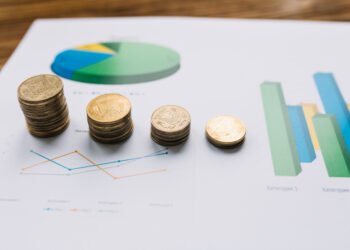Sustainability refers to the ability of a society or an Earth-environmental system to persist in the face of change over time. This may mean the capacity for ecosystems to maintain productive processes, cultural and institutional practices that build wealth and security for current societies and human activities, or resisting consumption at a level that does not lead to the sustainable depletion of resources.
The definition is not static; rather, it focuses on change over time, be it evolutionary or revolutionary. Therefore sustainability is not a static goal but rather changes over time and not only or primarily over a specific timeframe. It may impact and interact with different domains of life: supply chains, human rights, biodiversity loss, climate crisis, energy efficiency, creative industries, living conditions, management of water… and could take different forms of strategy or initiatives: Corporate sustainability, Nature Sustainability, cultural sustainability, Inclusive growth, economic sustainability, circular economy…
What is Sustainability?
Sustainability, meaning “to bear up under adversity” or “to maintain by enduring,” describes the capacity of an Earth-environmental system to persist in the face of change over time.
The concept of sustainability has been applied to both natural and human-made systems. However, it can refer specifically to social-ecological systems while not speaking of the long-term viability of natural systems.
In natural ecosystems, sustainability is the capacity of the ecosystem to persist in a productive state. In human society, social institutions and markets can maintain prosperity without a decline in the quality of life for any population group. It implies meeting human needs without destroying or degrading the environment on which life depends.
There may even be health benefits associated with sustainable development. At least two forms of sustainability are recognized: environmental and social.
Sustainability concerns assessing development that meets the needs of the present without compromising future generations’ well-being and ensuring these needs are fulfilled as well. Sustainability also refers to the idea of “sustaining” and “maintaining” concepts such as social justice, equality, ecology, and economy for future generations.
Sustainability has been defined in this way (following a definition by J. Crutzen): “Sustainable development is a development that meets the needs of the present without compromising the ability of future generations to meet their own needs.”
Sustainability is also understood as a state of being. In this sense, it is an alternative to the concept of progress in human knowledge and behavior. Instead of focusing on the idea that humans can control and predict their social environments more easily than what can be done with natural ecosystems, sustainability allows people to concentrate on maintaining their social structures and institutions.
Environmental sustainability, also called ecological sustainability or ecosystem sustainability, refers to the satisfaction of human needs without diminishing the environment on which they depend. An environment can provide jobs, drinking water, food, and a healthy place to live without degrading over time.
Sustainability can be measured by the extent to which different types of natural systems function and interact with one another and social systems.
Social sustainability refers to the maintenance of a certain level of social well-being over time. The term is used to describe social systems that provide a high quality of life in terms of education and health, produce the basic needs for all its citizens, and provide economic stability and security.
Social development focuses on human capacity building, enriching people, and giving them a decent life to assume responsibility for their own lives.
Our environmental impact is so important in this equation, like reducing our carbon emissions that impact human lives and enhance our sustainability performance.
What are Sustainability Goals?
Several organizations have defined sustainability in various ways. For example, the United Nations Environment Programme defines sustainability as Sustainable Development Goals or the new Sustainability Goals.
In 2015, the UN adopted 17 Sustainable Development Goals. These goals were set out as a global plan to end poverty, fight inequality, protect the planet, and ensure prosperity for all. They cover issues ranging from ending extreme poverty and hunger, ensuring access to clean water and sanitation, promoting gender equality and empowering women, protecting oceans and forests, combating climate change, and addressing inequalities between countries and within countries.
The goals are based on the principles of equity, common but differentiated responsibilities, and respective capabilities, partnership, and accountability.
Why Is it Important?
The importance of sustainable development stems from the fact that many of the world’s problems stem from unsustainable practices.
For example, there are currently about 1 billion people who lack access to clean water and 2.5 billion people who do not have adequate sanitation facilities. These issues are exacerbated by climate change, which will increase the frequency and intensity of droughts, floods, storms, heat waves, and other extreme weather events.
Sustainability is a journey and a commitment to sustainability is more necessary than ever to preserve our planet, reduce our carbon footprint, and preserve essential resources. That’s why education for sustainability should be required to deal with contemporary challenges, especially climate-related risks.





